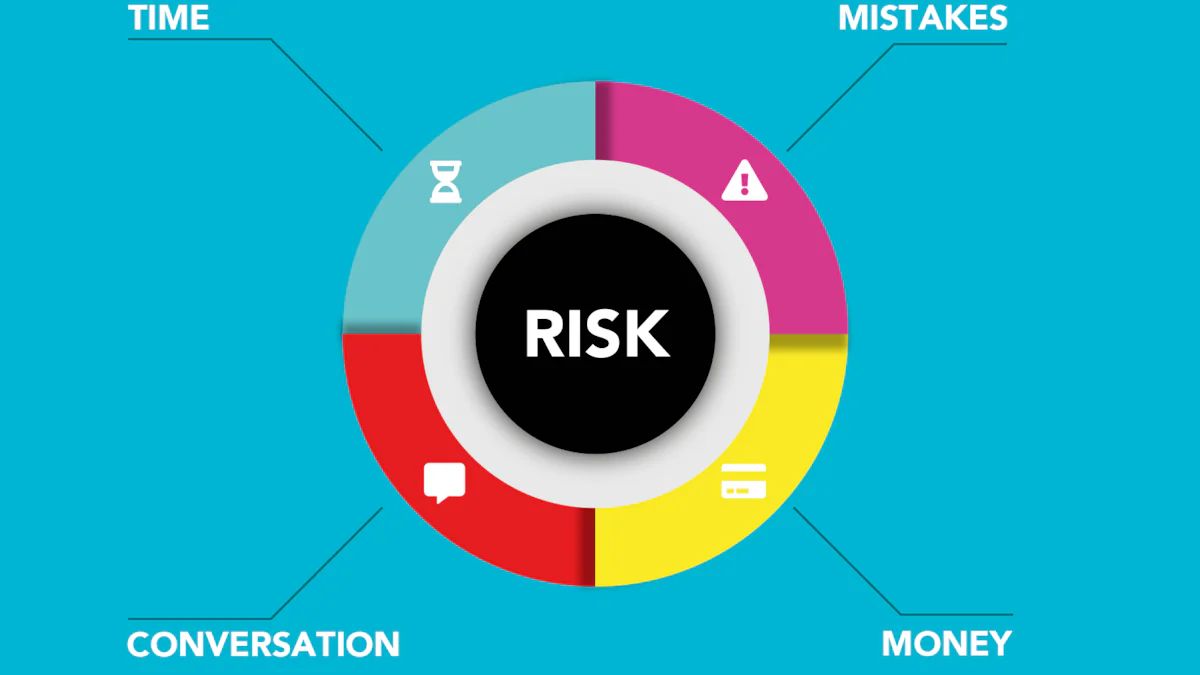Mastering Risk Management in DeFi
 Mastering Risk Management in DeFi
Mastering Risk Management in DeFi
Understanding Risk Management in Decentralized Finance (DeFi)
Decentralized finance (DeFi) has revolutionized the traditional financial landscape by offering increased accessibility, transparency, and financial inclusivity. With the rise of DeFi, risk management has become crucial to navigate the unique challenges presented in this ecosystem. One key player in DeFi risk management is automated market makers (AMMs). These protocols facilitate liquidity provision and enable efficient trading within DeFi platforms. By automating price discovery and reducing the impact of large trades on the market, AMMs contribute significantly to mitigating risks in DeFi. In this blog post, we will explore the importance of risk management in DeFi and discuss effective strategies for safeguarding your investments.
The Importance of Risk Management in DeFi
Decentralized finance (DeFi) brings numerous benefits, but it also introduces unique risks due to its decentralized nature and lack of regulatory oversight. Effective risk management is essential to protect investments in this rapidly evolving ecosystem.
Challenges in Risk Management
One of the primary challenges in DeFi risk management is the presence of smart contract vulnerabilities. Smart contracts are self-executing agreements that underpin many DeFi protocols, and any flaws or bugs can lead to significant financial losses. Additionally, market volatility poses a challenge as prices can fluctuate rapidly, impacting the value of assets held within DeFi platforms. Furthermore, liquidity risks arise when there is insufficient liquidity available for trading or when users encounter difficulties accessing their funds.
Role of Automated Market Makers (AMMs)
Automated market makers (AMMs) play a crucial role in mitigating risks within the DeFi space. These protocols provide liquidity by allowing users to trade assets without relying on traditional order books. By automating price discovery and enabling efficient trading, AMMs contribute to reducing slippage and minimizing the impact of large trades on the market. This helps maintain stable prices and enhances overall market efficiency.
AMMs utilize mathematical formulas to determine asset prices based on supply and demand dynamics. Popular AMM models include constant product market makers like Uniswap and constant sum market makers like Balancer. These models ensure that trades can be executed even when there might not be sufficient buyers or sellers at a specific moment.
In summary, risk management is vital in DeFi due to its inherent risks arising from decentralization and lack of regulation. However, automated market makers (AMMs) offer solutions by providing liquidity and automating price discovery mechanisms, ultimately contributing to a more secure and efficient DeFi ecosystem.
Strategies for Mitigating Risks in DeFi
When it comes to managing risks in decentralized finance (DeFi), implementing effective strategies is crucial. Here are two key approaches that can help mitigate risks and safeguard your investments.
Diversification
Diversification is a fundamental risk management strategy that involves spreading investments across different DeFi protocols and assets. By diversifying your portfolio, you reduce the impact of potential losses from any single project or smart contract vulnerability. Investing in a variety of projects helps mitigate the risk of being heavily exposed to one specific platform or token.
Furthermore, diversification allows you to hedge against smart contract risks. While audits and security measures can minimize vulnerabilities, no system is entirely immune to bugs or hacks. By investing in multiple projects, you decrease the likelihood of being affected by a single smart contract failure.
Due Diligence and Research
Thorough due diligence and research are essential components of effective risk management in DeFi. Before investing in any project, it's crucial to conduct comprehensive research on its background, team members, and overall credibility. Look for transparency regarding project goals, roadmaps, and community engagement.
Auditing smart contracts is another critical step in mitigating risks. Smart contract audits help identify potential vulnerabilities or weaknesses that could be exploited by malicious actors. Engaging with reputable auditing firms can provide an additional layer of assurance when evaluating the security of a project.
Understanding the underlying technology and project fundamentals is also vital for risk assessment. Evaluate factors such as tokenomics, governance mechanisms, and market demand for the project's services or products. This knowledge will enable you to make informed investment decisions while identifying potential risks or scams.
By diversifying your investments and conducting thorough due diligence and research, you can effectively manage risks associated with DeFi investments. These strategies provide a solid foundation for navigating the dynamic landscape of decentralized finance while safeguarding your capital.
Mastering Risk Management in DeFi
In the decentralized finance (DeFi) space, risk management is crucial to protect your investments and navigate the ever-evolving landscape. Automated market makers (AMMs) play a significant role in mitigating risks by providing liquidity and automating price discovery. However, mastering risk management requires more than relying solely on AMMs.
By employing diversification strategies, you can spread your investments across different DeFi protocols and assets, reducing the impact of potential losses. Additionally, conducting thorough due diligence and research helps identify potential risks and scams, ensuring informed investment decisions.
To truly master risk management in DeFi, it's essential to combine these strategies with ongoing education and staying updated with industry trends. By doing so, individuals can effectively navigate the risks associated with DeFi while maximizing their investment opportunities.
